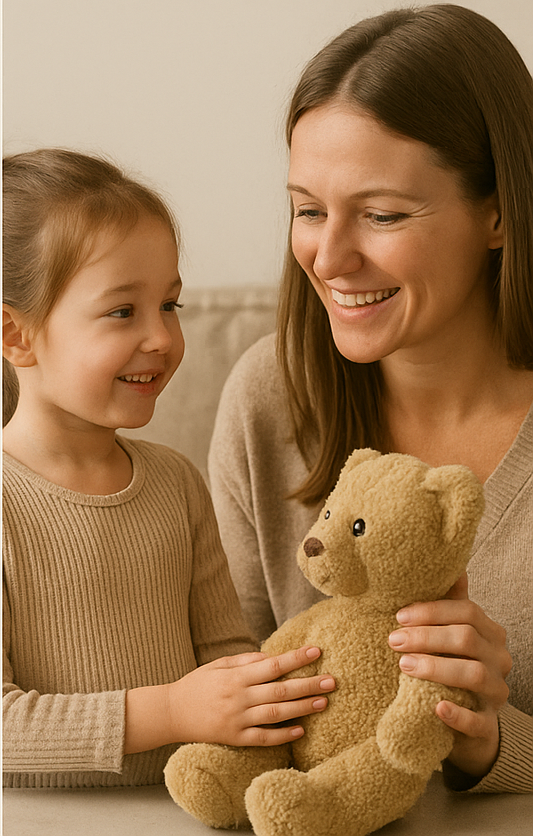In a world that can often feel fast-paced and self-centered, raising kind and empathetic children is one of the most powerful things a parent or caregiver can do. Kindness and empathy are not just personality traits—they are skills that can be nurtured and modeled from an early age.
This article offers practical strategies to help you raise a child who not only understands their own feelings but also cares about others.
Why Kindness and Empathy Matter
Children who grow up with empathy and kindness are more likely to:
- Build healthy friendships
- Succeed in teamwork and cooperation
- Resolve conflicts peacefully
- Develop emotional intelligence and compassion
Empathy is at the heart of emotional and social development—and it starts at home.
1. Model the Behavior You Want to See
Children learn empathy by watching how adults treat others. Your everyday actions are their greatest lessons.
Show kindness by:
- Speaking politely to others, including your child
- Saying “please,” “thank you,” and “I’m sorry”
- Offering help to neighbors, friends, or strangers
- Expressing emotions in healthy ways
What you model becomes their normal.
2. Talk About Feelings Often
Help your child build an emotional vocabulary by naming feelings:
- “You look frustrated. Want to talk about it?”
- “That must have made you really happy!”
- “He’s crying—maybe he’s feeling sad.”
By recognizing emotions in themselves and others, children begin to understand how actions affect people around them.
3. Read Stories That Teach Empathy
Books are powerful tools for helping kids explore emotions and perspectives.
Choose stories that:
- Show characters facing problems or showing compassion
- Include different backgrounds, abilities, or cultures
- Prompt questions like, “How do you think she felt?”
After reading, talk about the characters’ feelings and choices.
4. Encourage Helping at Home
Kindness starts with contribution. Give your child age-appropriate ways to help others:
- Feeding pets
- Making a card for someone who’s sick
- Helping a sibling clean up
- Holding the door open
When children feel helpful, they feel empowered.
5. Celebrate Acts of Kindness
Point out kind behavior when you see it, both in your child and others:
- “That was so thoughtful of you to share.”
- “You noticed your friend was upset and gave them a hug—how kind!”
- “Grandma was so grateful for your help.”
Positive reinforcement encourages repetition.
6. Practice Perspective-Taking
Help your child imagine how others might feel in different situations:
- “What would you do if your friend lost their toy?”
- “How do you think your teacher feels when kids interrupt?”
- “Why do you think your cousin was upset at the party?”
This helps children learn that everyone sees the world differently.
7. Set Clear Expectations About Respect
Kindness includes respectful words and actions. Teach your child what respectful behavior looks like:
- Listening without interrupting
- Not teasing or name-calling
- Saying “excuse me” or “thank you”
Correct unkind behavior calmly but firmly—and always follow it with a conversation about how to make better choices next time.
8. Expose Them to Diversity
When children see people who are different from them—culturally, physically, or socially—they learn to be open-minded and compassionate.
Ideas:
- Visit community events or cultural festivals
- Read books or watch shows that include diverse characters
- Talk about inclusion and fairness
Empathy grows when children see and celebrate differences.
9. Volunteer Together
If possible, involve your child in acts of service, like:
- Donating clothes or toys
- Writing letters to elderly residents in a care home
- Baking treats for neighbors
These activities teach the joy of giving and plant seeds of compassion.
10. Teach Forgiveness and Making Amends
Everyone makes mistakes. What matters is learning from them.
When your child hurts someone’s feelings:
- Help them understand what happened
- Encourage a sincere apology
- Offer ways to make things right
Forgiveness and accountability are part of being kind—and being human.
Final Message: Lead with Love
Raising a kind, empathetic child doesn’t require perfection—it requires intention. It means choosing compassion in the little moments. Listening instead of lecturing. Praising gentle gestures. Modeling emotional honesty.
The world needs more people who care. And with your support, your child can grow into someone who not only understands their feelings—but reaches out to understand others, too.
Kindness is contagious. Let your home be where it begins.
